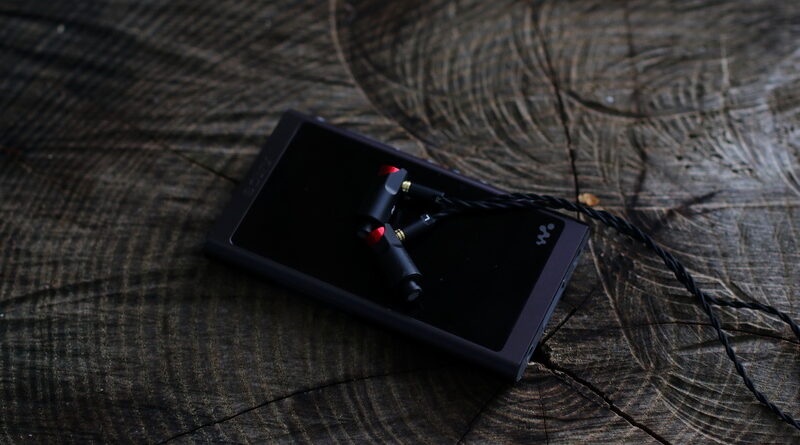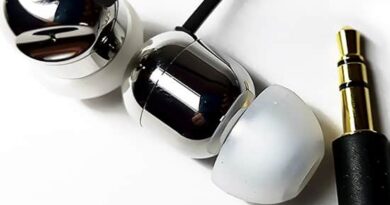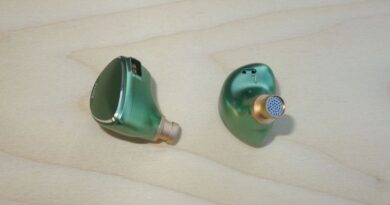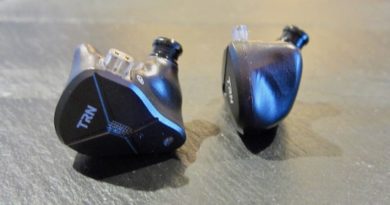Cat Ear Mia Review (3) – Better Luck Next Time
Pros — Very good build quality
– Sub-bass can be fun with some genres and tracks
– Fairly wide soundstage and above-average instrument separation
Cons — Too much bass bloat
– Nozzle is a bit thicker than ideal
– Poor stock cable
– Dark and bassy tuning will be rather divisive
INTRODUCTION
Cat Ear is a new brand from Shenzhen who has gone for a rather feline-themed branding. The Mia (meow?) is their first IEM (and the only one so far in their lineup) and at $99 retail faces stiff competition from both the lower and higher priced segments.
Usually newcomers in the market try to generate hype by some sort of novel driver setup or offering absurdly good value-for-money on paper at least. Cat Ear has a similar trick up their sleeve: cryogenic treatment. Apparently both the drivers and the cable/connectors have gone through -196C cryogenic treatment, a process that includes treating the materials in <-190C temperatures which improves wear resistance and removes residual stress.
All that sounds quite complicated and fancy, but does that improve anything on the sound front? Let’s find out.
Note: the ratings given will be subjective to the price tier. Nappoler Hu of HifiGo was kind enough to send the Cat Ear Mia as a review unit. Disclaimer.
Sources used: Sony NW-A55, Cowon Plenue V, LG G7, Cayin N3 Pro
Price (while reviewed): $80
PHYSICAL THINGS AND USABILITY
IN THE BOX…
You get 6 pairs of eartips of two different kinds. I went for the slightly stiffer pink-stemmed tips. You also get a Cat Ear sticker (!), some extra rubber rings for blocking the vent near the mmcx stem, a serviceable carrying pouch, and of course the cable.
Ah, the cable, the worst thing in the accessory pack. It’s got a very grippy coating that catches on to jacket zippers very easily. To make matters worse: it’s incredibly tangle-prone and microphonic. The build quality is decent to be honest but the ergonomics are all over the place. Moreover there’s the uneven braiding of the cable itself that looks very janky from up close. The cable alone makes the accessory pack a disappointment and that’s a shame.
3/5
APPEARANCE, HAPTIC, AND BUILD QUALITY
The Cat Ear Mia is a bullet-shaped IEM.The entire housing including the nozzles is made of anodized aluminium. The back portion has a striking red color and is beveled from the rest of the housing, creating a rather unique design. The channel markings are in large font at the bottom of the housing, with a vent-hole next to them. The IEMs have mmcx terminations and by default there is a little rubber ring between the mmcx port and the cable joint. This apparently blocks another small vent and increases bass quantity, but I personally would recommend removing this ring because otherwise the bass is uncontrolled and bleeds into mids.
Overall, a no-frills yet solid build with subtle design hints that sets it apart from its peers.
4.5/5
ERGONOMICS, COMFORT, ISOLATION, AND FIT
The nozzle is thicker than I prefer so the IEMs can slide out at times, thus not the most comfortable/unfussy fit out there. I think the stubby nozzle can make it more difficult for people with small canals. Isolation is average.
3.5/5
TECH INSIDE
The Cat Ear Mia is a single-dynamic IEM with an 8mm PET diaphragm driver inside. Given the recent rage of Beryllium coated drivers the old PET diaphragm might seem a bit… lacklustre. Nonetheless, the proof is in the sound.
SOUND
The Cat Ear Mia is a bass-forward IEM and can be called “L-shaped” in terms of frequency response skewness. The bass takes the center stage, female vocals sit right behind whereas male vocals and treble is at a distance.
The following impressions were made with the stock clear tips and stock cable. Listening mostly done on LG G7/Sony NW-A55. The rubber ring was removed.
Lows: With the aforementioned rubber-ring installed the bass becomes too muddy to have any definition whatsoever. Removing it results in a bloomy mid-bass and an overzealous sub-bass, but at least it’s listenable now. The bass lacks texture and just can’t keep up with fast basslines, with bass notes often bleeding into one another. Some basshead might like this presentation but I think the bass on the Cat Ear Mia is too distracting to be enjoyable across a range of genres. Nonetheless, it can get fun with some pop and rock songs so there’s that. Snare hits are also extra-juicy which is a guilty pleasure of mine.
3/5
Mids: The midrange on the Cat Ear Mia isn’t as bad as you’d expect from the graph. Lower mids sound recessed but male vocals do come through for the most part. Female vocals get more focus in comparison. Vocals do sound somewhat nasal and don’t have the correct tonality, which I suspect is a result of a too early rise into the upper-mids. You do get used to it pretty quickly. Strings come through pretty well, however the leading edge of notes lack bite and energy. Overall timbre is colored and not really what I’d refer to as “natural”. Resolved detail is average, it won’t get anywhere as detailed as the resolution champs in this price bracket.
3.5/5
Treble: The treble takes a nose-dive after 5KHz, resulting in a total lack of air and rather muted cymbal strikes and hi-hats. This dark-ish tuning would work well had the bass not been so boosted which results in a sensation of lower-res playback. Probably not what you’d expect when you’re spending $80 in the current market.
What little of treble is there is pretty inoffensive, but it’s just the bare minimum and IEMs at 1/3rd the price of the Cat Ear Mia does considerably better. A shame.
3/5
Soundstage: Soundstage is surprisingly wide given the imposing bass and lack of air in the treble region. It has just about average depth but the width allows good left/right separation and can make songs sound quite engaging.
4/5
Imaging: Imaging is average, mostly left/right. Instrument separation is, again, better than you’d expect given the signature. It won’t make you feel like you’re inside a 3D blob of sound, but very few in this price segment will.
3/5
Bang-for-buck: The Cat Ear Mia is built well and has a mainstream tuning. However, the accessory pack isn’t the best, the bass is just too much and overall technical performance is below par, if not way below par. It does have the coherence of a single-dynamic but even the timbre couldn’t become a redeeming factor. The one thing that acts as a saving grace for the Mia: it can be a fun listen with certain genres (rock/pop) and has a pretty laid back tuning that can be a plus for the treble-averse.
2.5/5
Source and Amping: The Cat Ear Mia doesn’t have a lot of amp demands at 105dB/mW sensitivity. It ran pretty well from the LG G7. I did like it most out of the Cayin N3 Pro (with tube mode engaged) but most dongles will do an adequate job.
SELECT COMPARISONS
vs Final E3000 ($60): Given that both the Final E3000 and the Cat Ear Mia are bullet-shaped IEMs a comparison between them is rather apt. The E3000 also opts for a dark and bassy tuning but rolls off in the sub-bass region instead of the major boost that Cat Ear Mia offers. The midrange is also tuned differently with more laid back midrange tuning in the E3000 whereas Mia has a bit more aggression in the upper-mids especially. The treble has better extension in the Final E3000, and in turn the Final E3000 also trounces the Cat Ear Mia in terms of soundstage and imaging/instrument separation. The E3000 does lack a detachable cable — its Achilles Heel according to many.
For my money — I’d probably get the E3000 though if it’s dark and bassy that I want. If you need more sub-bass focus then the Cat Ear Mia can be a more attractive option.
vs Moondrop Starfield ($109): The Moondrop Starfield also has a warm tuning but it is more of a mid-focused tuning. The Starfield is a great option for those who need up-front vocals, in stark contrast to the Cat Ear Mia. Soundstage and imaging is better on the Cat Ear Mia, however. And the Starfield comes with an even worse cable so there’s that.
vs Final E4000 ($129): The Final E4000 “fixes” the lack of sub-bass on the E3000 and can be considered a wholesale upgrade in most technical aspects (soundstage/imaging/separation). The E4000 also has a detachable cable. So far so good.
However, the amp demands are kind of overkill for such a budget device. Most phones and portable DAC/Amp dongles won’t be able to exert the full performance of the E4000. For that, you’d need a good portable amp or DAP, in stark contrast to the Cat Ear Mia.
CONCLUDING REMARKS
For a debut product, Cat Ear could’ve done far worse. However, I do wish they did quite a bit better. As of now the Cat Ear Mia is average, if not overpriced. Current price is actually $20 lower than the $100 launch price but still — it’s getting outpaced by all its peers.
Cat Ear has nailed the industrial design (even though ergonomics need a bit more work), now I hope they focus more on the tuning side of things, and slightly better accessories won’t hurt either.
As for the Mia: I can’t wholeheartedly recommend it, alas.
MY VERDICT
Overall Rating: 3.5/5
I find it overpriced given the performance on display


DISCLAIMER
HifiGo Store was kind enough to send the Cat Ear Mia as a review unit.
Set provided by and available for purchase from Hifigo.
Our generic standard disclaimer.
You find an INDEX of our most relevant technical articles HERE.






PHOTOGRAPHY





